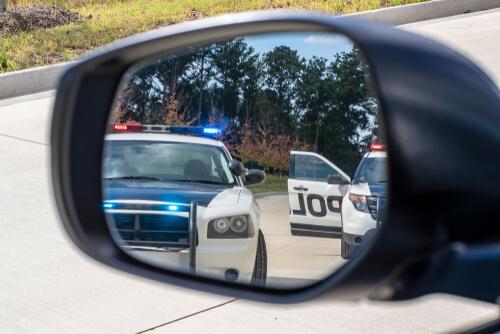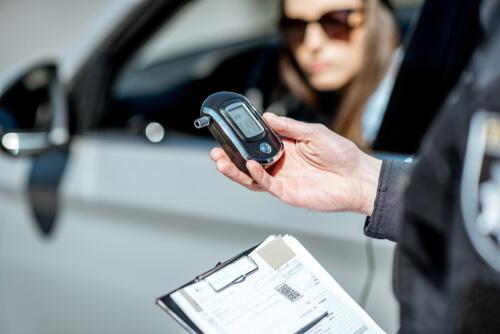Free Consultations 512-474-2222
512-474-2222
Contact Our Firm
The use of the Internet or this form for communication with the firm or any individual member of the firm does not establish an attorney-client relationship. Confidential or time-sensitive information should not be sent through this form.
I have read and understand the Disclaimer and Privacy Policy.

Recent Blog Posts
Who Pays for Damages in a Multi-Vehicle Crash or Pileup?
 Multi-vehicle collisions or pileups are often especially complex from a legal perspective. For example, if a vehicle is rear-ended by another vehicle and the force of the impact causes that vehicle to strike a third vehicle, who is at fault? Does the driver of the second vehicle have to pay for the third vehicle's repairs? Is the driver of the first vehicle responsible for all of the damages? Is there some way of sorting out the responsibility among multiple parties?
Multi-vehicle collisions or pileups are often especially complex from a legal perspective. For example, if a vehicle is rear-ended by another vehicle and the force of the impact causes that vehicle to strike a third vehicle, who is at fault? Does the driver of the second vehicle have to pay for the third vehicle's repairs? Is the driver of the first vehicle responsible for all of the damages? Is there some way of sorting out the responsibility among multiple parties?
If you or a loved one were injured in a crash involving multiple vehicles, consider reaching out to a car crash injury lawyer for help. You may have a legal claim against one or more of the involved parties. Your lawyer can explain the law and help you determine who is responsible for your medical bills, vehicle repairs, and other costs related to your accident. In some cases, you may be able to file a lawsuit if negotiations with other parties fail.
What You Should Know About Stalking Charges in Texas
 Have you been charged with stalking in Texas? If so, it is important to understand the charges and how to navigate the legal process. In this blog post, we will discuss what constitutes stalking in Texas, the potential penalties for a stalking conviction, and the steps you should take if you are arrested for stalking.
Have you been charged with stalking in Texas? If so, it is important to understand the charges and how to navigate the legal process. In this blog post, we will discuss what constitutes stalking in Texas, the potential penalties for a stalking conviction, and the steps you should take if you are arrested for stalking.
What is Considered Stalking in Texas?
In Texas, a person can be charged with stalking if they commit two or more of certain acts (including following someone in public or online) with intent to harass or intimidate another person. Additionally, these acts must cause substantial emotional distress to the other person. It is important to note that it does not matter whether the stalker intended to cause distress; only that they did cause the other person distress.
The Potential Penalties for a Conviction
If convicted of stalking, a defendant may face serious consequences including fines of up to $10,000 and a jail sentence of two to ten years. Additionally, a defendant may be required to attend counseling or anger management classes and may also be placed on probation for an extended period of time. A second conviction for stalking is punished even more harshly and has a maximum prison sentence of 20 years.
What Happens if You Are Caught with Marijuana Cartridges in Texas?
 Marijuana or cannabis may be consumed in several different ways. Marijuana vaporizers or “vapes” have become increasingly popular in states that allow medical or recreational use of THC products.
Marijuana or cannabis may be consumed in several different ways. Marijuana vaporizers or “vapes” have become increasingly popular in states that allow medical or recreational use of THC products.
In Texas, cannabis, marijuana, and THC remain illegal. Penalties for possession of cannabis products can be significant – especially if the product contains THC concentrate. If you or a loved one are facing criminal charges for marijuana possession, cultivation, or distribution, make sure to work with an experienced drug crime defense lawyer.
THC Vapes and Cartridges Can Lead to Felony Charges
With so many states changing drug laws, it can be hard to keep up to date about what is legal. Texas has some of the most restrictive laws regarding marijuana use. Texas law also classifies marijuana “flower” or plant material differently than it classifies products containing THC concentrate. Possession of THC oil cartridges or “carts” that are used in vaporizers carries especially harsh penalties.
Gathering and Preserving Evidence in an 18-Wheeler Accident
 Auto accidents involving 18-wheelers often lead to catastrophic injuries and substantial financial loss. Individuals who are injured in commercial truck accidents may be able to recover financial compensation for their losses, but building a successful claim is not easy. The trucking company and its insurer will do everything possible to avoid a large payout. Gathering and preserving supportive evidence is crucial to developing a robust case for compensation.
Auto accidents involving 18-wheelers often lead to catastrophic injuries and substantial financial loss. Individuals who are injured in commercial truck accidents may be able to recover financial compensation for their losses, but building a successful claim is not easy. The trucking company and its insurer will do everything possible to avoid a large payout. Gathering and preserving supportive evidence is crucial to developing a robust case for compensation.
Demonstrating Negligence, Liability, Causation, and Damages
The main elements of a truck accident claim include duty, breach of duty, causation, and damages. Truck drivers have a duty to follow FMCSA regulations and traffic laws and to drive in a safe, responsible manner. Similarly, trucking companies have a duty to follow the law, properly vet employees, and maintain safe vehicles. In order to prove negligence, a truck accident attorney must establish that the truck driver or company breached their duty of care and that breach caused the accident and resulting injuries.
Can I Get My License Back After a DWI?
 In Texas, driving while intoxicated (DWI) charges can lead to criminal penalties, including fines, community service, or even jail time. However, for many people, these are not the worst of the consequences. A DWI arrest is also punishable by driver's license suspension. Once someone's license is suspended, driving any vehicle is against the law. Considering many people rely on their driving ability to get to and from work, fulfill everyday responsibilities, and care for family members, a suspended license can have a devastating effect on their lives. Fortunately, it may be possible to get your license back after a DWI in Texas.
In Texas, driving while intoxicated (DWI) charges can lead to criminal penalties, including fines, community service, or even jail time. However, for many people, these are not the worst of the consequences. A DWI arrest is also punishable by driver's license suspension. Once someone's license is suspended, driving any vehicle is against the law. Considering many people rely on their driving ability to get to and from work, fulfill everyday responsibilities, and care for family members, a suspended license can have a devastating effect on their lives. Fortunately, it may be possible to get your license back after a DWI in Texas.
Driver's License Suspensions in Texas
Many people do not realize that they can lose their license even if they are not convicted of drunk driving. The mere act of failing a breathalyzer can lead to a 90-day license suspension. If the police ask you to take a breath test but you refuse, the penalty is a 180-day license suspension.
What Should I Do If There is a Warrant Out for My Arrest?
 Few circumstances produce the anxiety associated with being wanted by the police on suspicion of criminal activity. An arrest warrant allows the police to arrest you at any time and you have no way of knowing when it will happen. You could be pulled over for a minor infraction like speeding when the police realize there is a warrant for your arrest and promptly place you in handcuffs. Or, you could visit the courthouse for a completely unrelated reason and then find yourself being arrested in front of everyone. An unexpected arrest like this can feel like an ambush. It is usually inconvenient, upsetting, and embarrassing to be arrested without any forewarning.
Few circumstances produce the anxiety associated with being wanted by the police on suspicion of criminal activity. An arrest warrant allows the police to arrest you at any time and you have no way of knowing when it will happen. You could be pulled over for a minor infraction like speeding when the police realize there is a warrant for your arrest and promptly place you in handcuffs. Or, you could visit the courthouse for a completely unrelated reason and then find yourself being arrested in front of everyone. An unexpected arrest like this can feel like an ambush. It is usually inconvenient, upsetting, and embarrassing to be arrested without any forewarning.
A jail walk-through is an alternative option for individuals with a warrant out for their arrest. The defendant essentially turns himself or herself in to the police before the police find and arrest him or her. If there is a warrant out for your arrest, you may want to consider a jail walk-through.
How Can I Get My Driver’s License Back After a DWI?
 In Texas, drunk driving is punishable by both criminal penalties and administrative consequences. If you were convicted of driving while intoxicated (DWI), the state can take your driver’s license away. Once your license is suspended, you are not allowed to drive. Diving any vehicle with a suspended driver’s license could lead to further criminal charges. If you lost your license because of a DWI, you may be able to reinstate your license and regain your legal ability to drive.
In Texas, drunk driving is punishable by both criminal penalties and administrative consequences. If you were convicted of driving while intoxicated (DWI), the state can take your driver’s license away. Once your license is suspended, you are not allowed to drive. Diving any vehicle with a suspended driver’s license could lead to further criminal charges. If you lost your license because of a DWI, you may be able to reinstate your license and regain your legal ability to drive.
Steps to Take to Reinstate Driving Privileges After a Suspension
Each DWI case is different and the exact steps you must take to get your license back depend on the circumstances of your DWI offense, criminal history, and other factors. If you were convicted of DWI, you must pay reinstatement fees and submit paperwork to the Texas Department of Public Safety proving that they have taken the required steps. Many people accused of drunk driving or driving under the influence of drugs must complete an alcohol and drug education program. They may also be required to install an ignition interlock device on their vehicle. This device is like the breathalyzer or breath test used during a traffic stop. The driver blows into the device and the device measures the amount of alcohol on the driver’s breath. If the device detects alcohol, the vehicle will not start. If the device does not detect any alcohol on the driver’s breath, the car will start up normally.
5 Reasons Your DWI Breath Alcohol Test Results Could Be Wrong
 When police suspect someone of drunk driving, they often administer a breath alcohol test or "breathalyzer." The driver blows into the device and the device analyzes the amount of alcohol contained in the breath sample. The breath alcohol content is used to approximate the driver's blood alcohol content.
When police suspect someone of drunk driving, they often administer a breath alcohol test or "breathalyzer." The driver blows into the device and the device analyzes the amount of alcohol contained in the breath sample. The breath alcohol content is used to approximate the driver's blood alcohol content.
Breath tests are generally considered to be trustworthy indicators of intoxication. However, they are not perfect. If you or a loved one were arrested for drunk driving, it is important to know how unreliable breath alcohol test results can impact the case.
Breath Test Problems Can Lead to Inaccurate Results
There are a number of ways that the accuracy of breath test results can be compromised:
-
Mouth Alcohol - If there is any alcohol in the mouth at the time of the test, it will skew the results. This can happen if the driver burped, vomited, or had anything to drink right before the test.
Is Being a Sugar Baby Illegal in Texas?
 Public opinion regarding sexuality has changed dramatically in the past few decades. Websites where individuals can sell explicit photographs such as Onlyfans are increasingly popular. However, there is a fine line between selling adult pictures and videos online and meeting someone for paid sex. Chiefly, the former is legal while the latter is illegal.
Public opinion regarding sexuality has changed dramatically in the past few decades. Websites where individuals can sell explicit photographs such as Onlyfans are increasingly popular. However, there is a fine line between selling adult pictures and videos online and meeting someone for paid sex. Chiefly, the former is legal while the latter is illegal.
“Sugar relationships” are another increasingly popular means of making money, especially among young women. "Sugar babies" who offer companionship in exchange for money or gifts and the "sugar daddies" who provide these gifts often worry about the legal implications of their actions. They ask themselves questions like, "Is being a sugar baby the same as prostitution?" or "Can I go to jail for paying a sugar baby for sex?" The questions to these answers are not always easy to understand, and the sugar baby relationships often straddle the line between prostitution and a legal relationship.
Legal Options After an Oil Industry Accident in Austin
 Texas is the leading crude oil producer in the United States, producing over 40 percent of the nation's crude oil in 2021. Oil refineries are responsible for millions of jobs in Texas and help ensure that individuals across the country have access to reliable energy sources. Unfortunately, working in the oil industry comes with certain risks. Severe worker injuries and fatalities occur in the oil and gas industry at a much higher rate than injuries and fatalities in other industries. Some of these injuries and fatalities are unavoidable, while others are the direct result of another party's negligence or wrongful actions.
Texas is the leading crude oil producer in the United States, producing over 40 percent of the nation's crude oil in 2021. Oil refineries are responsible for millions of jobs in Texas and help ensure that individuals across the country have access to reliable energy sources. Unfortunately, working in the oil industry comes with certain risks. Severe worker injuries and fatalities occur in the oil and gas industry at a much higher rate than injuries and fatalities in other industries. Some of these injuries and fatalities are unavoidable, while others are the direct result of another party's negligence or wrongful actions.
If you or a loved one suffered a serious injury while working in the oil industry, you may be able to take legal action and pursue monetary compensation for damages.
Common Oil Industry Injuries in Texas
There are many different types of injuries that can occur in the oil industry. Some of the most common include:




